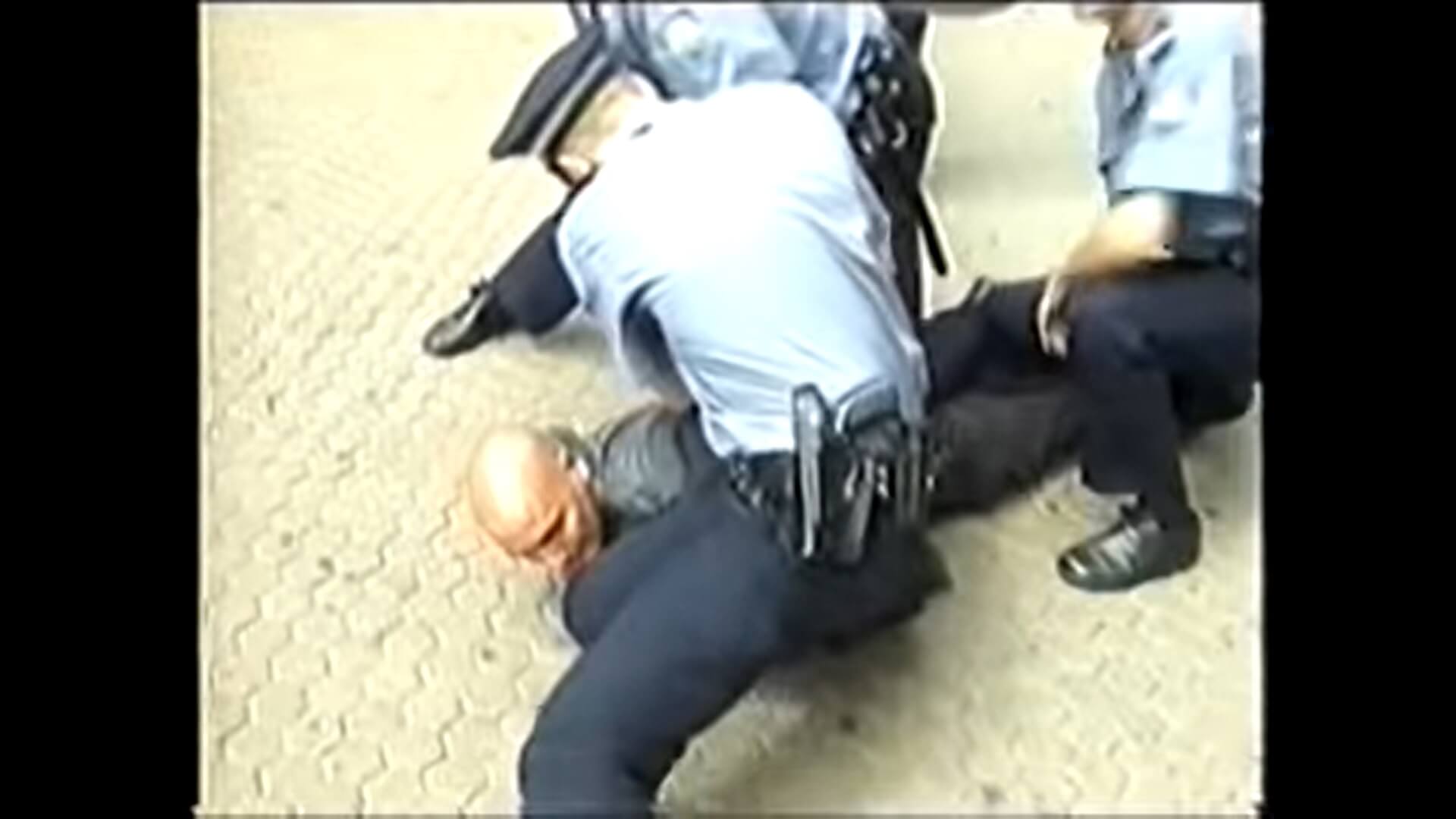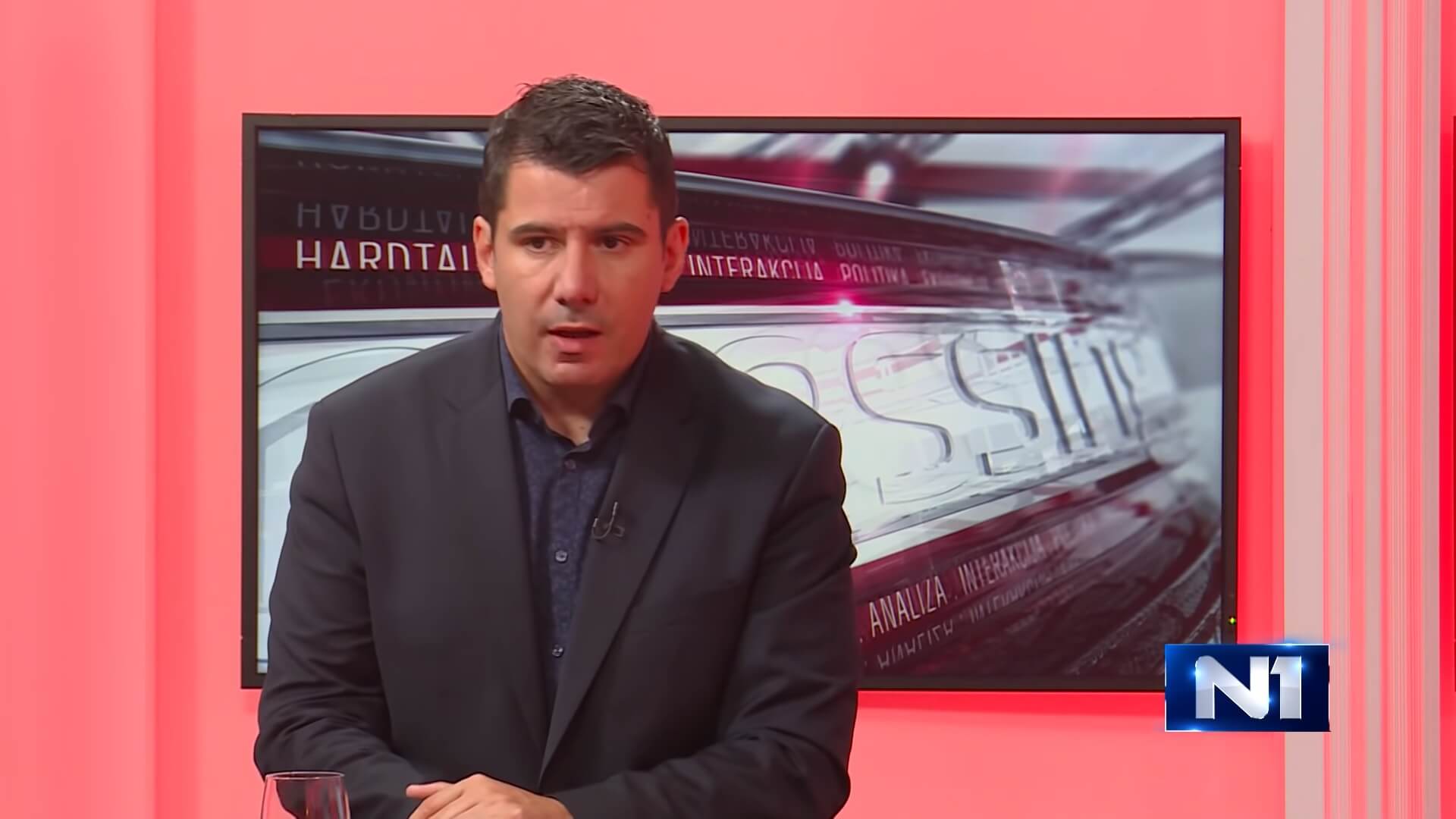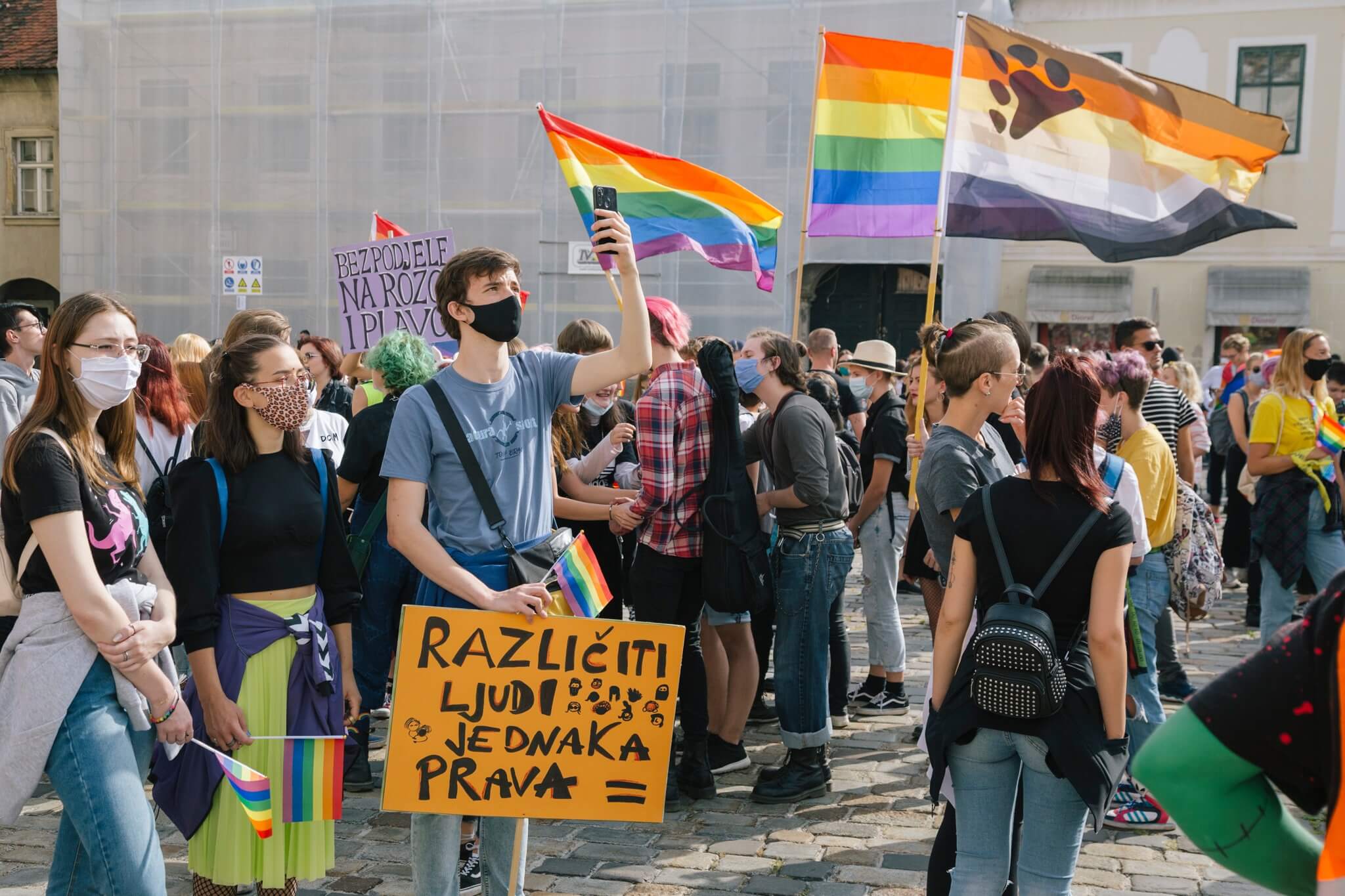Zagreb Gay Pride 2021 Analysis: Issues Still Exist, Pride Celebrates History and Present Equality
July 5, 2021 - Gay rights in Croatia still have challenges ahead, but even if all problems are resolved, Pride should remain a commemorative event. A look at the history of gay culture in Croatia and the current climate in this Zagreb Gay Pride 2021 Analysis by TCN reporter Ivor Kruljac.
Zagreb Pride is the oldest pride in Croatia. First held in 2002, it attracts more and more people every year, from LGBTQ members, straight people that support gay rights to NGOs, human rights activists, and even politicians from the left and liberal specter. Over the years, the event grew from a one-day pride to Pride month, full of educational and entertaining events regarding LGBTQ issues and a chance for people with the same preferences to meet and celebrate who they are.
Pride month is marked in June in honor of the 1969 Stonewall Uprising in Manhattan.
„The Stonewall Riots, also called the Stonewall Uprising, began in the early hours of June 28, 1969, when New York City police raided the Stonewall Inn, a gay club located in Greenwich Village in New York City. The raid sparked a riot among bar patrons and neighborhood residents as police roughly hauled employees and patrons out of the bar, leading to six days of protests and violent clashes with law enforcement outside the bar on Christopher Street, in neighboring streets, and in nearby Christopher Park. The Stonewall Riots served as a catalyst for the gay rights movement in the United States and around the world“, reminds History.com.
When it comes to LGBTQ in Croatia, as you can expect with the ideological divide Croatians generally experience, there are mixed feelings on the issue.
From street violence to a family event
Participating in the first Pride in 2002 required that if you are a man loving a man ready to openly admit it, you had to have balls.
The attacks by skinheads and other „morally concerned citizens were fierce and violent. Participants truly needed police protection which was provided but also needed to be careful to not get hit by the incoming rocks that were thrown among the participants.

Police arresting violent skinhead at the first Zagreb Pride in 2002, screenshot / Zagreb pride
But, at least for Zagreb, the situation got better and more open. Today, pride is the forthcoming celebration of love and freedom, and entire families can be seen to join the picnic at Ribnjak park to teach their children tolerance and that people are not sick or different from others because of their sexual preference. Other larger cities in Croatia, such as Split, slowly but surely, do follow that path too, and Rijeka, the pinnacle of liberal Croatia, is also a very gay-friendly city.
Of course, a political counterstrike is expected and quite strong. The first most notable one was the 2013 referendum, where it was voted that the Croatian constitution declares marriage as a „community between a man and woman“. The goal was to deny LGBTQ couples the same rights as enjoyed by straight people.
However, the bill on life partnership outplayed that attempt.
In the meantime, LGBTQ couples can also adopt children in Croatia, as Constitutional Court concluded that gay couples fostering children is not against the Croatian Constitution.
That decision and along with the general openness of Croatia towards LGBTQ was followed by a controversial carnival in Imotski where an effigy of a gay couple was burned. President Zoran Milanović demanded an apology from the organizers, and SDP's MP Arsen Bauk filed charges against the organizers.
Counting pluses and minuses, the report on Croatia being the 39th best country for LGBTQ visitors still seems to uphold. No changes for the better, but at least Croatia is still in the top third for this category of tourists.
Haters strike back
2020 and 2021 sadly saw the uprise of violence towards LGBTQ in the Croatian capital. Apart from the occasional tearing down or burning of the rainbow flag, Croatia was shocked with an attempt of burning a man in Maksimir Forest Park as well, with his sexual preference being the sole motive for the attack.
On the other side, this year's pride felt to start stronger than ever. The newly elected mayor Tomislav Tomašević joined the parade, along with stating that Zagreb is a city that is open to everyone. This year arranged a bit differently to adhere to corona measures; around 2500 participated in the event.
„Twenty of our prides made our city and our republic a better, more democratic, and joyous place for the life of all citizens“, was the main message of the 20th edition of Zagreb Pride.
As reported by Index.hr, the Zagreb Pride association representatives stated that the Croatian LGBTIQ community „became a powerful, responsible and self-aware part of the country, but that the fight isn't over“.
„Our constitution and our laws still do not include in a complete and fair way. Our streets and squares are still not free of hate. We didn't forget nor we will forget victims of homophobic and fascist rampage in this year and all previous years“, stated Zagreb Pride.
Sadly, while Pride itself went without issues, participants of the pride who walked the streets of Zagreb after pride with rainbow flags faced a series of physical attacks on several locations in Zagreb.
A week ahead of Pride, conservative MOST Party parliament member Nikola Grmoja complained that commercials displayed during EURO 2020 commercials were LGBTQ propaganda and that kids need to be protected from it and announced that he might include it in his anti-pedophile package. Grmoja's statement caused strong disagreements among the Croatian public, with several people (including celebrities) teasing him that if he wants to start battling pedophilia, he should start from church (as Grmoja is quite clerical). Božo Petrov, president of the MOST party, added more fuel to the fire when he supported Grmoja, stating that „minorities can't dictate what my children can learn in school“. He added that minorities need to be aware that they are minorities and that „we tolerate that," sparking more enrage from the public, with many comparing MOST to the controversial Hungarian Prime Minister Viktor Orban.
Zagreb Pride linked the post-Pride physical attacks with Petrov and Grmoja's public statements, and Petrov and Grmoja announced they would sue Zagreb Pride for slender.

Nikola Grmoja, screenshot N1
The Law: "Gay is OK". Popular opinion: "Do it in your homes, not on the streets".
In this political escalation, what does the average Croatian think? Looking at the comments on social networks, it seems the majority of Croatians don't mind gays being gays and living how they like (even if they are not always happy with legal rights the LGBTQ community received). But, one sentiment in that „tolerance“ is particularly worrying.
„Live in your house however you want it. You don't have to wave around, like its a best thing ever“, said one of the online comments on Index.hr beneath the news on Petrov and Grmoja.
So it seems the public does not understand why Pride is important. First of all, as evident, the political climate is such that the battle for equality truly isn't over in Croatia, and Pride is the best way for the community to express what issues LGBTQ still face in Croatia. Additionally, pride month is also educational and supportive, and public presence show to other people who feel the same that they are not alone, as they might feel lonely and unable to find people who feel the same in everyday life.

© Zagreb Pride
But, even if the law and constitution give the same rights and solves the problem of intolerance of LGBTQ people completely, does that mean that Pride should then be canceled? Well, Croatia won its independence and the war in the nineties. Does that mean we should stop commemorating the Homeland War? Or is it nice to honor and celebrate the victory and triumph over all obstacles Croatia had to face in its independence? Pride is a cultural, commemorative event honoring those who were or still are victims and oppressed for their sexual preference, either in Croatia or in the world. Croatia is a democratic country. Every group, national, ethnical, racial, religious, etc. should have the right to gather and honor its heroes. The right to gather and honor its tragedies and their dates and connect with other people who feel the same. If political elites are so concerned with keeping Croatians in Croatia, then they can't afford to discriminate or attack part of Croatian society solely based on their sexual preference. A preference that, unlike being violent or intolerable, can't be chosen.
Learn more about LGBT rights in Croatia and what LGBT tourists should know on our TC page.
For more about LGBT in Croatia, follow TCN's dedicated page.
Zagreb Pride: Outbreak of Homophobic Violence for First Time in 10 Yrs
ZAGREB, 4 July, 2021 - The Zagreb Pride organisation said on Sunday that yesterday, for the first time in ten years, an outbreak of homophobic violence occurred on the day of the LGBTIQ community's Pride Parade in Zagreb.
Zagreb Pride said in a press release the "outbreak of homophobic-fascist violence" consisted of "a series of attacks, arson and insults in different parts of the city."
It expects the police to treat all the attacks as hate crimes motivated by sexual orientation and not as misdemeanors for disturbing the peace.
The organisation said it had contacted some of the victims and that it would extend legal and other support "in the criminal procedure because the perpetrators (of one attack) have been arrested."
Describing another attack, Zagreb Pride said that a young lesbian was attacked after the parade by four men who noticed her rainbow flag. They grabbed the flag, hit her, threw her to the ground and took off, it added.
According to the organisation, several incidents involving threats, intimidation and vulgar outbursts have not been reported. It called on victims to contact them and report the attacks with the organisation's help.
"Violence against LGBTIQ persons on the streets of Zagreb and other cities, notably Rijeka, is again becoming a serious problem for our society," the press release said.
LGBTIQ youth, who are the most frequent victims of such public violence, will never agree to live in the closet, as they loudly showed at the Pride Parade yesterday, Zagreb Pride said.
"They have lived their entire lives in a society in which our struggle has opened the spaces of their freedom. Every LGBTIQ person in Croatia has the right to live freely, be visible and themselves, wave the rainbow flag, hug and kiss in the street."
Zagreb Price said they had secured visibility and that this would never change. "We will never go back to the silence and the closet, we will never again lower our heads before these cowardly scoundrels. It's time the aggressive homophobic minority realises it has been defeated."
The organisation said "there is no doubt" that recent statements by MPs Nikola Grmoja and Božo Petrov, "spreading intolerance, homophobia, inciting divisions and hate," had contributed to Saturday's incidents.
For more news about Croatia, CLICK HERE.


